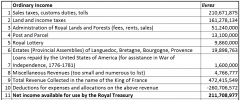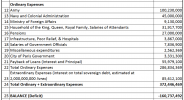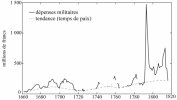raharris1973
Gone Fishin'
In OTL, France, via buccaneers, obtained neglected Spanish western Hispaniola during the middle 1600s. Over time they imported sugar planters and slaves from Martinique, in 1697, Spain belatedly recognized French control and Sainte-Domingue had become a big sugar plantation colony. By the mid and late 1700s it became a huge moneymaker for France.
meanwhile, the Spanish eastern two-thirds of Hispaniola, Spain’s inaugural Santo Domingo colony remained a relative backwater, lightly populated as colonists became attracted to the middle rich mainland after the Cortez and Pizarro expeditions, with the Spanish never intensively investing in sugar plantations in the later 1500s, 1600, 1700s, its economy was about ranching and small scale agriculture and crafts.
Near the end of the French period in Haiti/Sainte-Domingue, as a consequence of beating Spain in the war of the Pyrenees in 1795 or 1796 and the treaty of Basel, France compelled Spain to cede eastern Hispaniola, gaining the whole island for the first time.
I imagine the French were thinking this simplified defense, but also that this provided an opportunity to extend Haitian style intensive sugar cultivation across the entire island, and gain the profits therefrom. But they never got the chance because Haiti was in rebellion in this period, which largely succeeded by 1803, and France was at near constant war.
But could France have obtained all Hispaniola substantially earlier, developed it on Haitian lines, and profited immensely?
Possibly during the 1600s? Or during the War of the Quadruple Alliance against Spain in 1718-1719?
Or diplomatically, as part of an intra-Bourbon land swap- perhaps exchanging it for the claims on Louisiana territory or its Gulf Coast, especially in its early years when barely developed?
Or perhaps swapped in 1766 or 1768 when the French gave up their Malouines/Malvinas/Falklands fort to Spain?
In any case - if France had gotten all of Hispaniola, either starting in 1697, or 1719, or 1768, and from that point had start planting sugar cane on it, wall to wall, as quick as practicable, what kind of money would the French state and economy make from it- could it be in solid enough fiscal shape to avoid calling the Estates General in 1789, or even to avoid appeals to the Parlements several years earlier?
meanwhile, the Spanish eastern two-thirds of Hispaniola, Spain’s inaugural Santo Domingo colony remained a relative backwater, lightly populated as colonists became attracted to the middle rich mainland after the Cortez and Pizarro expeditions, with the Spanish never intensively investing in sugar plantations in the later 1500s, 1600, 1700s, its economy was about ranching and small scale agriculture and crafts.
Near the end of the French period in Haiti/Sainte-Domingue, as a consequence of beating Spain in the war of the Pyrenees in 1795 or 1796 and the treaty of Basel, France compelled Spain to cede eastern Hispaniola, gaining the whole island for the first time.
I imagine the French were thinking this simplified defense, but also that this provided an opportunity to extend Haitian style intensive sugar cultivation across the entire island, and gain the profits therefrom. But they never got the chance because Haiti was in rebellion in this period, which largely succeeded by 1803, and France was at near constant war.
But could France have obtained all Hispaniola substantially earlier, developed it on Haitian lines, and profited immensely?
Possibly during the 1600s? Or during the War of the Quadruple Alliance against Spain in 1718-1719?
Or diplomatically, as part of an intra-Bourbon land swap- perhaps exchanging it for the claims on Louisiana territory or its Gulf Coast, especially in its early years when barely developed?
Or perhaps swapped in 1766 or 1768 when the French gave up their Malouines/Malvinas/Falklands fort to Spain?
In any case - if France had gotten all of Hispaniola, either starting in 1697, or 1719, or 1768, and from that point had start planting sugar cane on it, wall to wall, as quick as practicable, what kind of money would the French state and economy make from it- could it be in solid enough fiscal shape to avoid calling the Estates General in 1789, or even to avoid appeals to the Parlements several years earlier?


